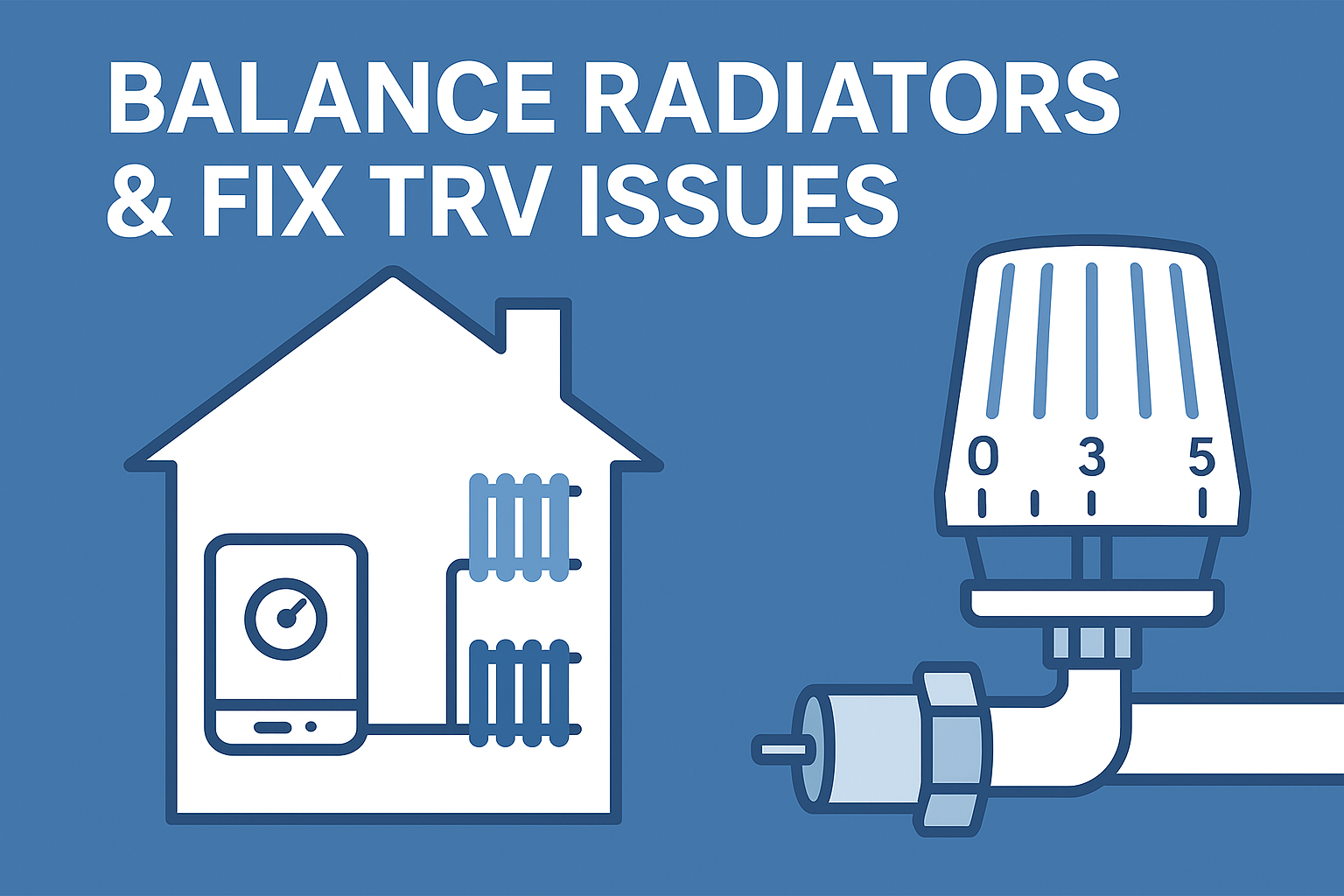Week 3: Balance Radiators & Address TRV Issues
Posted on September 15th, 2025

Sometimes tenants will complain that one room is too hot while another feels chilly, even though the heating is running. The two most common causes are:
- Radiators that are out of balance
- Faulty or misused thermostatic radiator valves (TRVs)
This week we’ll look at how to spot these problems and what landlords can do to fix common TRV issues — and when to call an engineer.
What Is Radiator Balancing?
Balancing radiators ensures hot water is distributed evenly across the system. Without balancing, radiators closest to the boiler often heat up quickly, while those further away remain lukewarm.
The process involves adjusting the flow of water using the lockshield valves on each radiator — something usually carried out by an engineer. But as a landlord, you can spot the signs that balancing is needed:
- Some radiators are hot while others remain cooler
- Rooms further from the boiler heat up much more slowly
- Tenants complain of inconsistent temperatures
👉 If you see these signs, it’s time to book a heating engineer for professional balancing.
Common TRV (Thermostatic Radiator Valve) Issues
TRVs allow tenants to control room temperatures individually, but they can develop problems. Here are the most common issues landlords may encounter and how to fix them.
1. Stuck TRV Pin
This is the most frequent TRV fault. If the radiator stays cold while others are hot, the pin may be stuck.
How to Remove the TRV Head
- Turn the TRV fully to the “5”.
- Push down gently on the TRV and unscrew by hand the collar at the base of the TRV.
- Carefully lift off the TRV head to expose the small metal pin underneath.
How to Free the TRV Pin
- The pin should move up and down about 2–3mm.
- If it’s stuck, gently press it down with a blunt object (like the back of a spoon or the handle of a screwdriver).
- Work it up and down until it moves freely.
- Avoid pulling the pin upwards — this can damage the valve.
- Once free, refit the TRV head and set it back to the desired number.
👉 If the pin will not move or water leaks when the TRV is removed, stop and call an engineer.
2. Incorrect TRV Settings
- Symptom: Room too hot or too cold.
- Fix: Set the TRV to the correct number (Usually around 3 for comfortable heating). Remind tenants not to cover TRVs with curtains or furniture.
3. Noisy TRV
- Symptom: Whistling or knocking noises.
- Fix: This usually means water flow is too high. An engineer can adjust flow during servicing.
Take Action This Week
As a landlord, you can:
✅ Check if radiators heat evenly and spot signs of imbalance
✅ Inspect TRVs and free stuck pins safely
✅ Remind tenants how to use TRVs properly
✅ Call an engineer for balancing or serious faults
Keeping TRVs working and radiators balanced means:
- Even heating throughout the property
- Happier tenants
- Less strain on your boiler